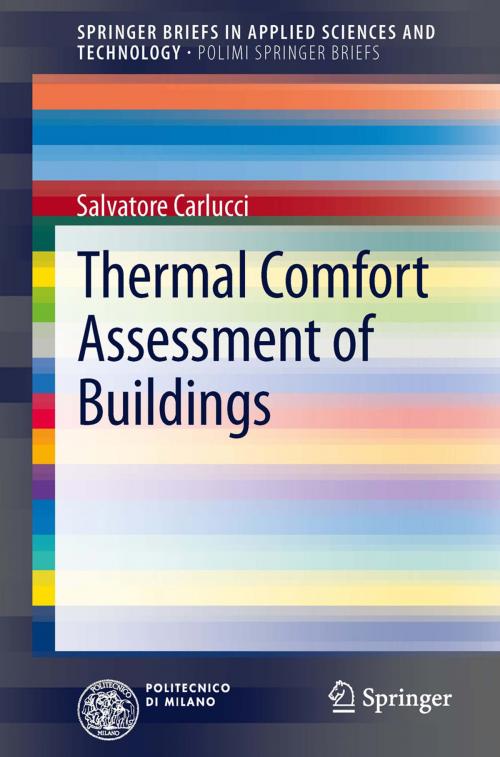Thermal Comfort Assessment of Buildings
Nonfiction, Science & Nature, Technology, Engineering, Civil, Power Resources| Author: | Salvatore Carlucci | ISBN: | 9788847052383 |
| Publisher: | Springer Milan | Publication: | May 24, 2013 |
| Imprint: | Springer | Language: | English |
| Author: | Salvatore Carlucci |
| ISBN: | 9788847052383 |
| Publisher: | Springer Milan |
| Publication: | May 24, 2013 |
| Imprint: | Springer |
| Language: | English |
A number of metrics for assessing human thermal response to climatic conditions have been proposed in scientific literature over the last decades. They aim at describing human thermal perception of the thermal environment to which an individual or a group of people is exposed. More recently, a new type of “discomfort index” has been proposed for describing, in a synthetic way, long-term phenomena. Starting from a systematic review of a number of long-term global discomfort indices, they are then contrasted and compared on a reference case study in order to identify their similarities and differences and strengths and weaknesses. Based on this analysis, a new short-term local discomfort index is proposed for the American Adaptive comfort model. Finally, a new and reliable long-term general discomfort index is presented. It is delivered in three versions and each of them is suitable to be respectively coupled with the Fanger, the European Adaptive and the American Adaptive comfort models.
A number of metrics for assessing human thermal response to climatic conditions have been proposed in scientific literature over the last decades. They aim at describing human thermal perception of the thermal environment to which an individual or a group of people is exposed. More recently, a new type of “discomfort index” has been proposed for describing, in a synthetic way, long-term phenomena. Starting from a systematic review of a number of long-term global discomfort indices, they are then contrasted and compared on a reference case study in order to identify their similarities and differences and strengths and weaknesses. Based on this analysis, a new short-term local discomfort index is proposed for the American Adaptive comfort model. Finally, a new and reliable long-term general discomfort index is presented. It is delivered in three versions and each of them is suitable to be respectively coupled with the Fanger, the European Adaptive and the American Adaptive comfort models.















